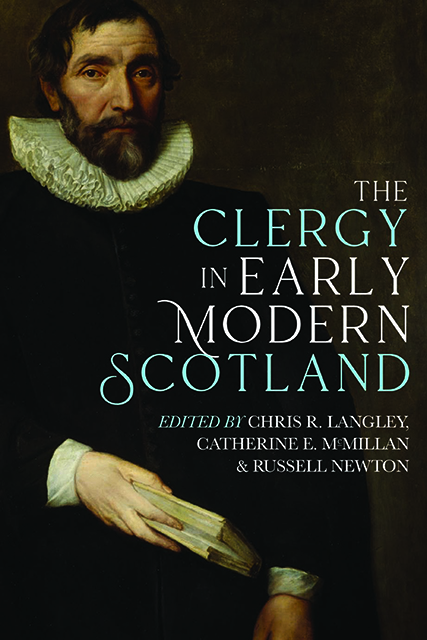9 - ‘Gryt Abuse is Found in this Toune’: James Sharpe and Moral Reformation in South Leith, 1639–45
Published online by Cambridge University Press: 14 January 2023
Summary
Parish ministers played a pivotal role in transforming religious cultures in mid-seventeenth-century Scotland. The Reformed Church of Scotland relied on a professional and dedicated ministry that would actively work to improve the moral standards of parishioners. On 28 August 1639, James Sharpe became minister at South Leith in Edinburgh Presbytery, where he served until his death in 1645. Sharpe was a diligent minister: he worked hard to reform the parish and was committed to ensuring the highest standards of godly behaviour amongst his parishioners. His activities illustrate the two main themes of this chapter: the mechanisms and tensions that occurred in ministerial appointments and that surrounded the minister’s personal authority with regard to the imposition of ecclesiastical discipline. By focusing on Sharpe’s tenure at South Leith, I argue that his ministry instigated an important step-change in the administration of discipline in the parish. Sharpe’s appointment as minister of the parish’s first charge marked a move from a reactive to a proactive disciplinary process. His ministry coincided with efforts made by the Church of Scotland to promote a programme of moral reform with the intention of improving behavioural standards across parish communities. The realisation of these godly ideals, however, depended on their being actively promoted at a local level by ministers such as James Sharpe.
There are no extant diaries or letters belonging to James Sharpe, as is the case with many ministers, but there are alternative methods by which the character of his ministry and that of other lesser-known clergy can be discovered. Case studies of kirk session records from across early modern Scotland have highlighted the voice of the minister in significant ways. Mary Black Verschuur adopted this methodology in a case study of Patrick Galloway, who became minister at Perth in 1581. Verschuur identified a new attitude to discipline that became evident in the Perth Kirk Session records, coinciding with Galloway’s appointment. Similarly, Michelle Brock explored the impact of a diligent minister in the parish of Ayr in 1647. William Adair, like Sharpe, was a committed presbyterian who sought to reform the ‘moral laxity’ of his parishioners by leading a ‘series of public, collective confessions’.
- Type
- Chapter
- Information
- The Clergy in Early Modern Scotland , pp. 171 - 185Publisher: Boydell & BrewerPrint publication year: 2021



